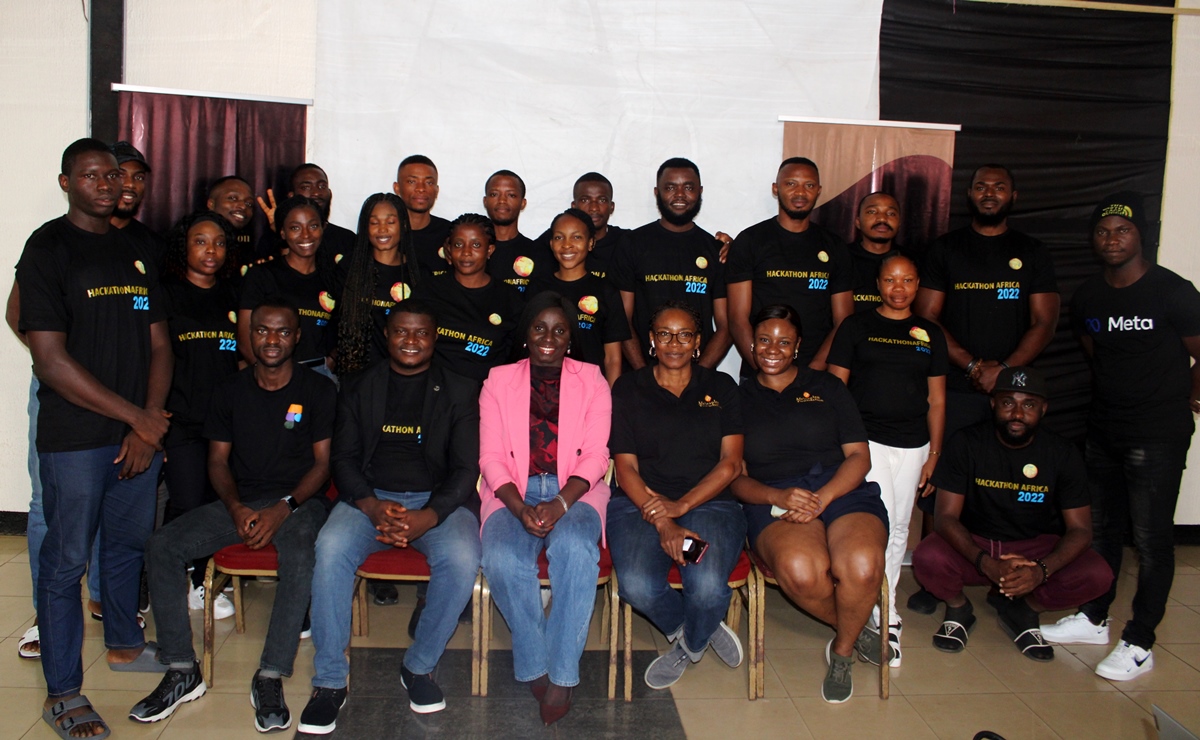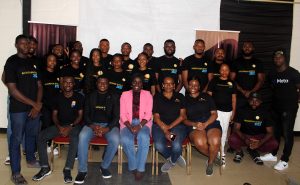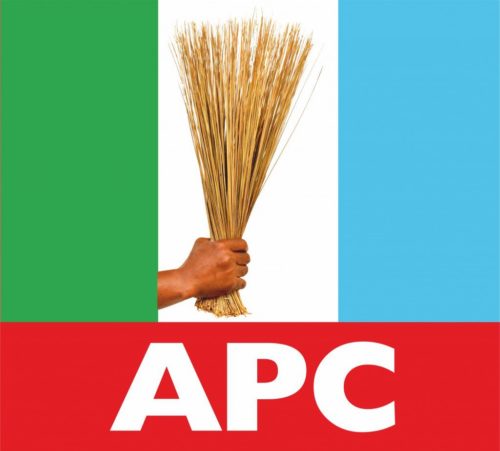Business
AfricaPlan Foundation Selects 20 Graduates for 2022 HackathonAfrica in Enugu

AfricaPlan Foundation Selects 20 Graduates for 2022 HackathonAfrica in Enugu
Enugu-born tech entrepreneur initiates a plan to put more graduates on to careers in technology
The inaugural edition of HackathonAfrica kicked off on Thursday, September 01, 2022, in Enugu, Southeast Nigeria.
The HackatonAfrica program, a brainchild of the US-based AfricaPlan Foundation, is an intensive software coding boot camp for fresh graduates aimed at tackling the steep digital skills deficit in the Southeast region and creating opportunities for the enterprising youth to tap into the burgeoning technology industry.
With Nigeria’s unemployment rate at more than 35%, the AfricanPlan Foundation said the HackathonaAfrica provides one of several unique opportunities that must be explored to creatively tackle the unemployment crisis through an inclusive and strategic digital upskilling program that creates opportunities for the next generation of young Nigerians to play an active part in the digital economy.
The Hackathon attracted massive interest from youths across the region with over 300 applications received. However, only twenty recent graduates were shortlisted to join the first cohort, which included ten males and ten females, underscoring the Foundation’s strategic commitment to inclusivity and removing biases by granting equal opportunities to both genders.
A unique fully-funded, residential software coding boot camp, HackathonAfrica will last for three months and will encompass intensive hands-on practical training on Fullstack Web Development (MERN) and in the latest and more commonly used software coding programs and databases in tech today.
The founder of the AfricaPlan Foundation, an accomplished technology industry executive and entrepreneur, Mr Oni Chukwu while speaking at the opening ceremony lamented the dearth of digital skills in Africa, which is hampering the ability of the continent to fully tap into the economic opportunities of the technology revolution and its attendant economic empowerment.
He noted that advances in technology, especially in software development have disrupted virtually every industry resulting in a greater disadvantage for any economy without sufficient or commensurate digital skills to meet industry needs. He, therefore, called on policymakers, governments at all levels and concerned individuals to embrace the new reality and put in place deliberate measures that will refocus the energy of the youth and equip them to tap into the technology sector.
In line with HackathonAfrica’s structure and design, the 20 trainees after completing their three months of training AfricaPlan will make every effort to deploy graduates to HackathonAfrica’s partner organisations within and outside Nigeria for their internship, with a stipend from the AfricaPlan Foundation. The long game here, according to Chukwu, is creating a successful pathway to launching successful careers in technology, as well as a pipeline to creating a talent pool for organisations that rely on digital skills on the continent. More partner companies that can join in providing internship opportunities for the students would be welcome.
Some of the participants who spoke to reporters during the ceremony expressed gratitude to the AfricaPlan Foundation for the opportunity and pledged to take full advantage of the programme to start careers in the tech industry.
Israel Chukwu, who studied Product Design Engineering at the university, said, “I finished school about 5 years ago and after the NYSC programme without a job, it puts you in a depressing state; you see your dreams slipping through your fingers. I stayed in Lagos for about two years and now I moved back to my hometown to take up this golden package. I feel glad. I tried coding at age 13 but could not continue. HackathonAfrica is a life-changing opportunity for me and I thank Oni Chukwu whom I have never met before being selected and the team for being thorough in their approach to the program.”
Also speaking at the opening ceremony in Enugu, Mr Jonah Onah, 2022 HackathonAfrica Project Coordinator, reiterated that the programme is anchored on three main objectives, which include upskilling, empowerment and sustainability, adding that AfricaPlan Foundation will leverage the initiative to provide excellent training that will equip youth in Southeast Nigeria with improved skills required to harness opportunities in the software technology space.
Business
Nigeria’s Inflation Drops to 15.10% as NBS Reports Deflationary Trend

Nigeria’s headline inflation rate declined to 15.10 per cent in January 2026, marking a significant drop from 27.61 per cent recorded in January 2025, according to the latest Consumer Price Index (CPI) report released by the National Bureau of Statistics.
The report also showed that month-on-month inflation recorded a deflationary trend of –2.88 per cent, representing a 3.42 percentage-point decrease compared to December 2025. Analysts say the development signals easing price pressures across key sectors of the economy.
Food inflation stood at 8.89 per cent year-on-year, down from 29.63 per cent in January 2025. On a month-on-month basis, food prices declined by 6.02 per cent, reflecting lower costs in several staple commodities.
The data suggests a sustained downward trajectory in inflation over the past 12 months, pointing to improving macroeconomic stability.
The administration of President Bola Ahmed Tinubu has consistently attributed recent economic adjustments to ongoing fiscal and monetary reforms aimed at stabilising prices, boosting agricultural output, and strengthening domestic supply chains.
Economic analysts note that while the latest figures indicate progress, sustaining the downward trend will depend on continued policy discipline, exchange rate stability, and improvements in food production and distribution.
The January report provides one of the clearest indications yet that inflationary pressures, which surged in early 2025, may be moderating.
Bank
Alpha Morgan to Host 19th Economic Review Webinar

Alpha Morgan to Host 19th Economic Review Webinar
In an economy shaped by constant shifts, the edge often belongs to those with the right information.
On Wednesday, February 25, 2026, Alpha Morgan Bank will host the 19th edition of its Economic Review Webinar, a high-level thought leadership session designed to equip businesses, investors, and individuals with timely financial and economic insight.
The session, which will hold live on Zoom at 10:00am WAT and will feature economist Bismarck Rewane, who will examine the key signals influencing Nigeria’s economic direction in 2026, including policy trends, market movements, and global developments shaping the local landscape.
With a consistent track record of delivering clarity in uncertain times, the Alpha Morgan Economic Review continues to provide practical context for decision-making in a dynamic environment.
Registration for the 19th Alpha Morgan Economic Review is free and can be completed via https://bit.ly/registeramerseries19
It is a bi-monthly platform that is open to the public and is held virtually.
Visit www.alphamorganbank to know more.
Business
GTBank Launches Quick Airtime Loan at 2.95%

GTBank Launches Quick Airtime Loan at 2.95%
Guaranty Trust Bank Ltd (GTBank), the flagship banking franchise of GTCO Plc, Africa’s leading financial services group, today announced the launch of Quick Airtime Loan, an innovative digital solution that gives customers instant access to airtime when they run out of call credit and have limited funds in their bank accounts, ensuring customers can stay connected when it matters most.
In today’s always-on world, running out of airtime is more than a minor inconvenience. It can mean missed opportunities, disrupted plans, and lost connections, often at the very moment when funds are tight, and options are limited. Quick Airtime Loan was created to solve this problem, offering customers instant access to airtime on credit, directly from their bank. With Quick Airtime Loan, eligible GTBank customers can access from ₦100 and up to ₦10,000 by dialing *737*90#. Available across all major mobile networks in Nigeria, the service will soon expand to include data loans, further strengthening its proposition as a reliable on-demand platform.
For years, the airtime credit market has been dominated by Telcos, where charges for this service are at 15%. GTBank is now changing the narrative by offering a customer-centric, bank-led digital alternative priced at 2.95%. Built on transparency, convenience and affordability, Quick Airtime Loan has the potential to broaden access to airtime, deliver meaningful cost savings for millions of Nigerians, and redefine how financial services show up in everyday life, not just in banking moments.
Commenting on the product launch, Miriam Olusanya, Managing Director of Guaranty Trust Bank Ltd, said: “Quick Airtime Loan reflects GTBank’s continued focus on delivering digital solutions that are relevant, accessible, and built around real customer needs. The solution underscores the power of a connected financial ecosystem, combining GTBank’s digital reach and lending expertise with the capabilities of HabariPay to deliver a smooth, end-to-end experience. By leveraging unique strengths across the Group, we are able to accelerate innovation, strengthen execution, and deliver a more integrated customer experience across all our service channels.”
Importantly, Quick Airtime Loan highlights GTCO’s evolution as a fully diversified financial services group. Leveraging HabariPay’s Squad, the solution reinforces the Group’s ecosystem proposition by bringing together banking, payment technology, and digital channels to deliver intuitive, one-stop experiences for customers.
With this new product launch, Guaranty Trust Bank is extending its legacy of pioneering digital-first solutions that have redefined customer access to financial services across the industry, building on the proven strength of its widely adopted QuickCredit offering and the convenience of the Bank’s iconic *737# USSD Banking platform.
About Guaranty Trust Bank
Guaranty Trust Bank (GTBank) is the flagship banking franchise of GTCO Plc, a leading financial services group with a strong presence across Africa and the United Kingdom. The Bank is widely recognized for its leadership in digital banking, customer experience, and innovative financial solutions that deliver value to individuals, businesses, and communities.
About HabariPay
HabariPay is the payments fintech subsidiary of GTCO Plc, focused on enabling fast, secure, and accessible digital payments for individuals and businesses. By integrating payments and digital technology, HabariPay supports innovative services that make everyday financial interactions simpler and more seamless.
Enquiries:
GTCO
Group Corporate Communication
[email protected]
+234-1-2715227
www.gtcoplc.com
-

 celebrity radar - gossips6 months ago
celebrity radar - gossips6 months agoWhy Babangida’s Hilltop Home Became Nigeria’s Political “Mecca”
-

 society6 months ago
society6 months agoPower is a Loan, Not a Possession: The Sacred Duty of Planting People
-

 society5 months ago
society5 months agoReligion: Africa’s Oldest Weapon of Enslavement and the Forgotten Truth
-

 news6 months ago
news6 months agoTHE APPOINTMENT OF WASIU AYINDE BY THE FEDERAL GOVERNMENT AS AN AMBASSADOR SOUNDS EMBARRASSING






